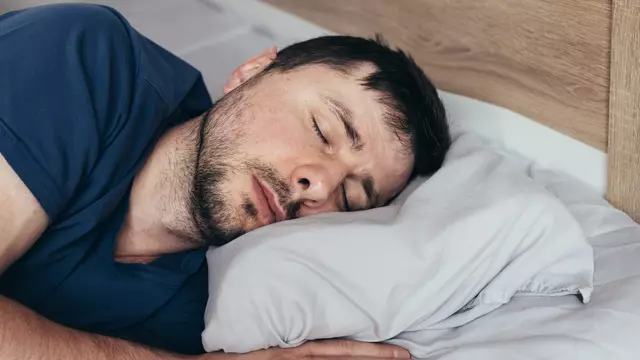For many, going to bed is the best time of the day, as you rest your eyes for an important day ahead.
And while many sleep experts talk about having that perfect environment for a good nights kip, you can take comfort in the fact that you’re never truly alone when you’re asleep.
Basically, dozens of eight-legged mites crawl on your face every single night, making for some unwanted visitors.
But thankfully, you cannot see or even feel these crawlers known as demodex mites, but rest assured they are everywhere on your body.
The minuscule parasites live around the outer parts of hair follicles and find their oily contents extremely tasty.
Alejandra Perotti, a professor of invertebrate biology at the University of Reading in the UK, said: “While we are sleeping, they come out and are very happy, mating, visiting relatives, walking on our faces. The moment we wake up, they go back inside the pore.”
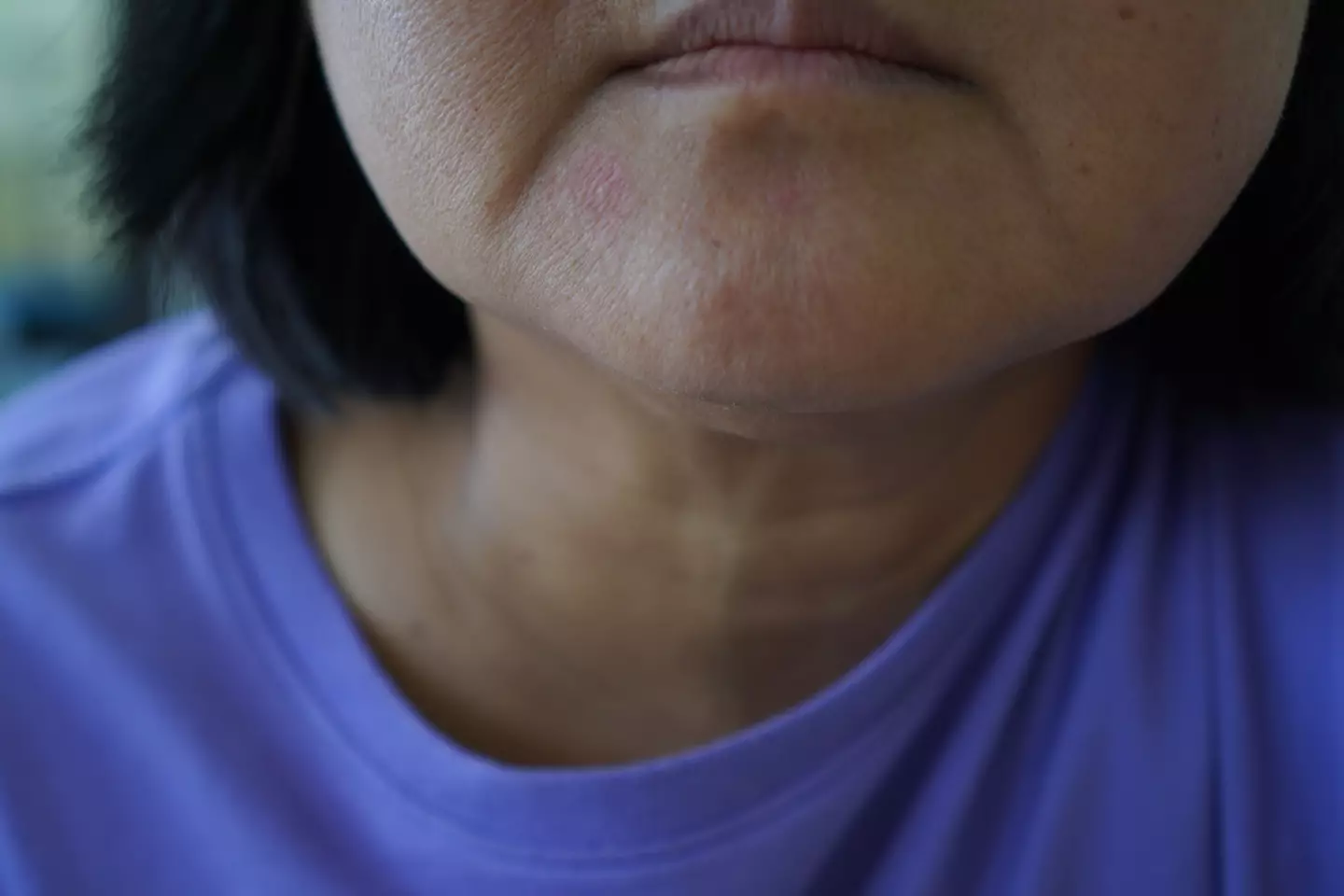

The mites are not visible (Getty Stock Photo)
While some of you may find that a little creepy, the expert went on to say there’s not really anything to worry about, as per CNN.
Demodex mites clean out the gunk from your pores, and they can continue to do so because they have evolved to resist ultraviolet rays from the sun, which could damage their DNA.
In exchange for these mites emptying out gunk, the human body offers our melatonin, a hormone produced in the skin that helps us to sleep, but vitally, provides energy for the mites to thrive.
Sometimes these tiny parasites can cause issues, but there are actions you can take to avoid this.
US physician Dr Dan Friederich, who specialises in sharing tips on how to look after your eyes as well as other medical advice tips, provided the information in a viral video.


The mites are found everywhere around your body (Getty Stock Photo)
Dr Friederich revealed that he can often tell if a person allows their pet to sleep in the same bed as them due to the appearance of parasites in their eyelashes.
“There is a common mite called Demodex that we see in the eyelashes that is a parasite. And the minute I see it in someone’s eyes, the first question I ask is, ‘do you sleep with your dog at night?’,” he explained.
There’s a really common cause of parasites appearing in your eyelashes, as the health expert added: “Don’t sleep with your animals if you can help it.”
Featured Image Credit: Getty Stock Images
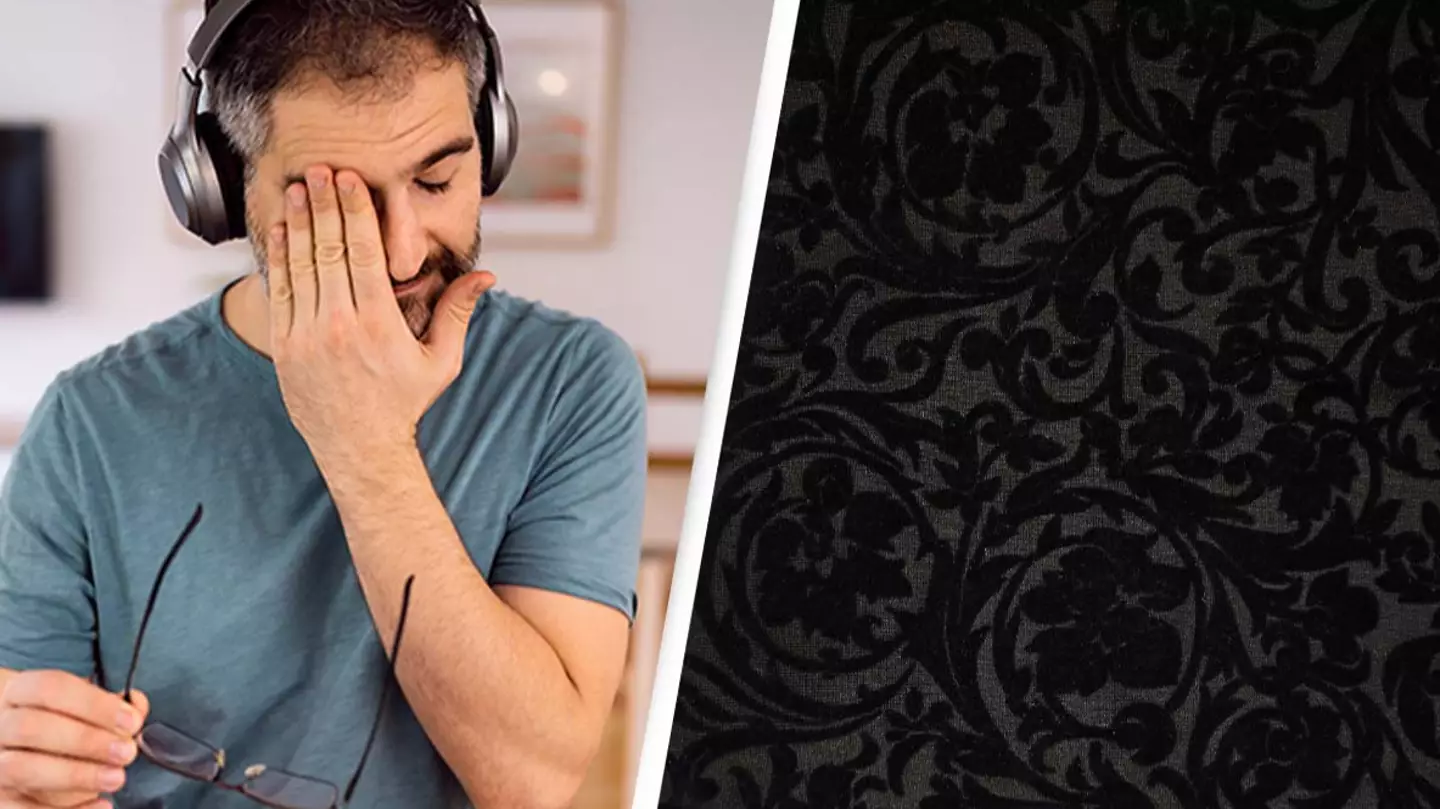

A scientist has revealed why you sometimes see patterns and colors when you close your eyes.
You get into bed, tuck yourself in and close your eyes ready to try and claw seven hours sleep to prepare yourself for another day in the rat race. But suddenly, instead of being met with pitch black and the ability to let your mind wander and body relax, you see spirals of color, zig-zags and it’s like a kaleidoscope or scene from Disney’s Fantasia – sleep but a mere dream.
The experience
Well, first things first, thankfully, you’re not the only person who this happens to, with many people having taken to social media in panic after experiencing a similar event.
One X user said: “Do u guys also have that weird thing where u can see colorful patterns when u have your eyes closed pls tell me someone knows what im saying.”
“YES ITS SO DISTRACTING WHEN IM TRYNA SLEEP,” another replied.
A third commented: “Yes!! It’s like a kaleidoscope.”
And a scientist has since revealed why many experience such a view.


It’s most apparent if you close your eyes in the dark. (Getty Stock Images/ Synthetick)
When it happens
In response to a seven-year-old with similar queries to the social media users, Associate Professor at Queensland University of Technology, Katrina Schmid, reassured the experience is ‘totally normal’.
In an article for The Conversation, the professor explained there are ‘a few different situations that can cause you to see colors with your eyes closed’, the first of which is if you close your eyes when you’re outside, in a bright room or in daylight.
“Some light does go through your closed eyelids. So you might see a dark reddish colour because the lids have lots of blood vessels in them and this is the light taking on the colour of the blood it passes through,” Prof. Schmid continued.
However, it’s the second instance which is the most common cause of swirls, colors and patterns specifically – when we close our eyes in the dark.


Do you see swirls and patterns when you clopse your eyes? (Getty Stock Images/ Ekaterina Goncharova)
Why it occurs
The professor explained she herself has experiences patterns including ‘dots and sparkles’ when she first closes her eyes in the dark and this then increases to ‘swirls and waves of colored dots’ the longer she spends in it.
But why? Well, the perceptions are known as ‘phosphenes’ which are a normal part of how eyes work and are ‘the sensation of light that’s not actually caused by light’.
Prof. Schmid said: “Our eyes don’t turn off in the dark, but instead they create very weak internal signals that mimic light. These signals are constantly being made by the cells at the back of your eyes.
“The swirls and waves we see are made by changes in activity from these cells. The blobs may be coloured because the cells in your eyes that detect colour also show this activity.
“These signals are transmitted to the brain, and the brain interprets this random activity. Your brain doesn’t know they weren’t produced by real light, so we think we’re seeing coloured lights and patterns that are not there. It’s a kind of illusion!”
On the whole, such illusions are absolutely nothing to worry about, however, if yours are ‘much more obvious’ and ‘patterns of light become much more noticeable or hang around for longer’ it may be a sign to consult with your optician.
Featured Image Credit: SrdjanPav/Getty Images/Getty Stock Images
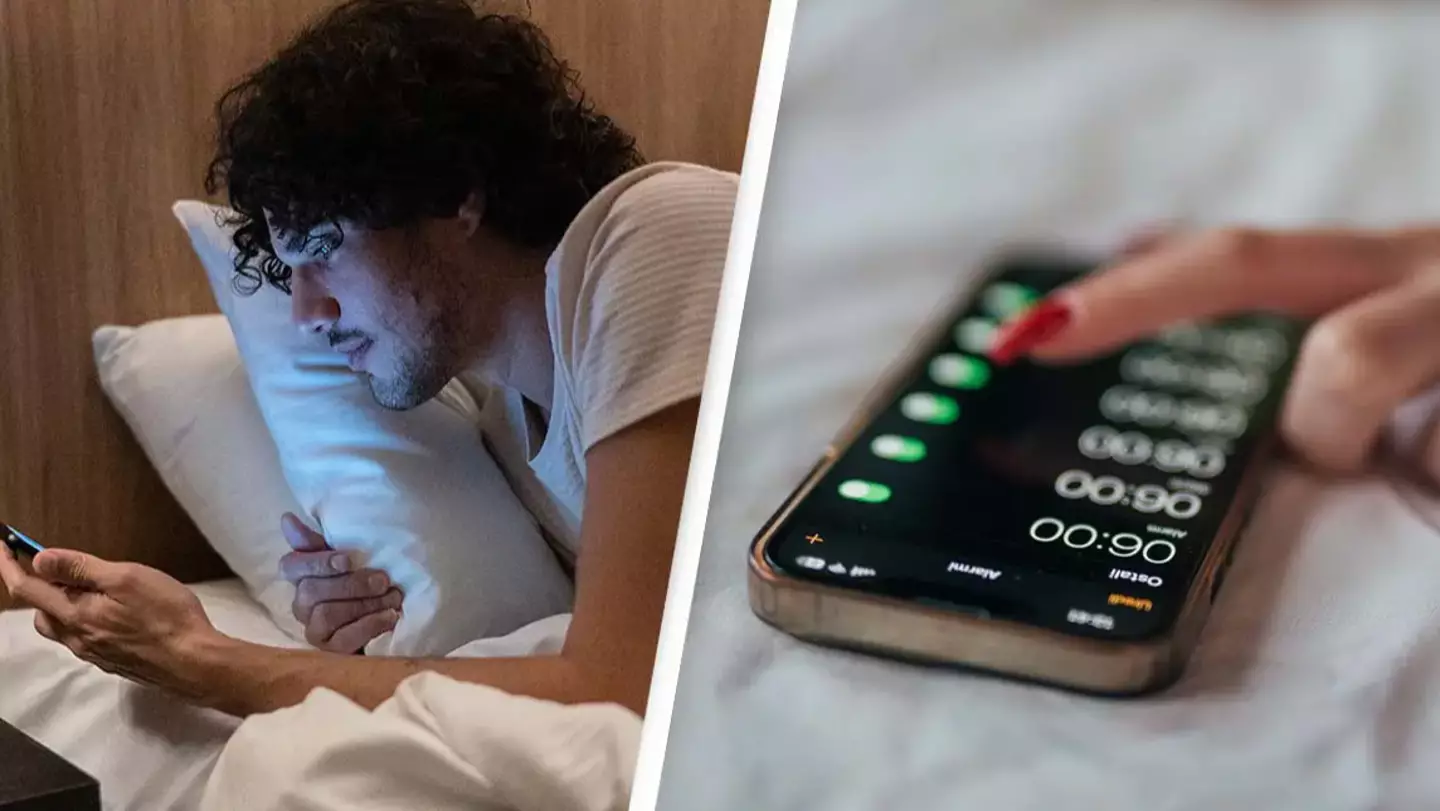

Often wake up minutes before your alarm is set to go off? Yep, me too and there’s a scientific explanation for this annoying situation.
It’s never a great start to the day is it? Waking up during what you think is the middle of the night to find you only have five minutes before the dreaded alarm goes off.
Do you get up or try and get that extra five minutes kip?
Either way it’s not a good situation, but there’s actually a simple reason as to why a lot of us wake up naturally minutes before the alarm goes off.
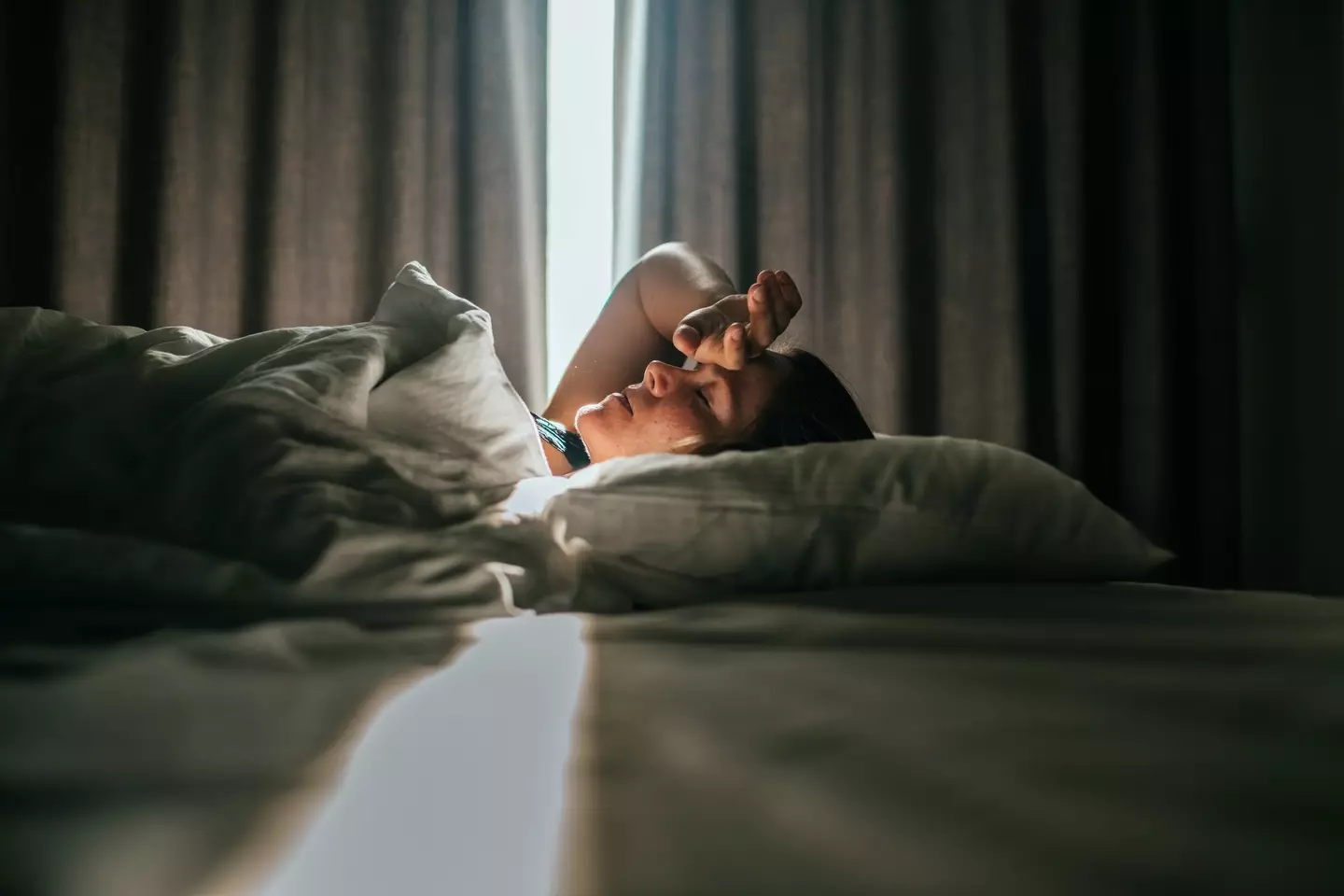

It’s fairly common to wake up in a few minutes before you alarm (Getty Stock Photo)
To put it simply, your body’s internal body clock is as efficient as that dreaded alarm that wakes you up every morning.
A protein known as PER is key when it comes to the sleep-wake cycle, as per the Daily Star.
Peaking in the evening and dropping at night, this protein works to full effect when you stick to a consistent sleep schedule. Sorry shift workers!
When PER levels are at their lowest, you typically feel drowsy as your heart rate is lower compared to usual – this allows for an easy process to get to sleep.
How do PER levels make you wake up before your alarm?
Well, PER levels are said to rise around an hour before you typically wake up, as well as blood pressure and overall body temperature.
Your sleep gradually lightens due to this and the mix of stress hormones your body releases in preparation to wake up and start the day.
This means you get to the stage of waking up minutes before you alarm instead of being rudely interrupted by the sudden noise while in a deep sleep.
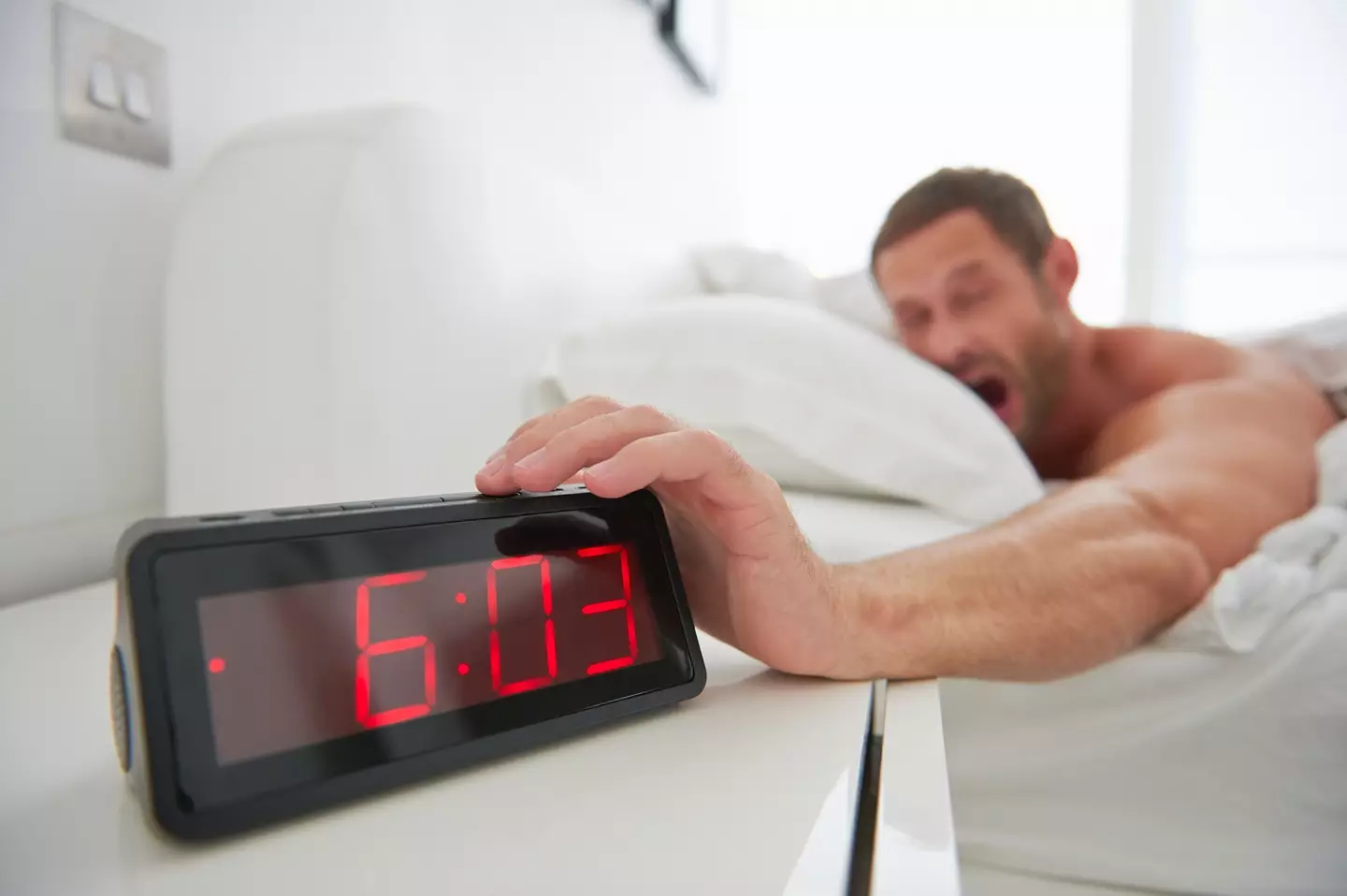

The reason you often wake up naturally before you alarm has been revealed (Getty Stock Photo)
And at that stage, you may think about hitting the snooze button – though many sleep experts over the years have advised against this.
Nurse Jordan in a TikTok video explained: “Waking to multiple alarms every morning really disrupts your REM cycle frequently.
“This actually causes sleep inertia, increased drowsiness, fatigue, mood swings and it also raises your cortisol levels.
“Every time your alarm goes off, you’re in that fight or flight response, so waking up like that multiple times in the morning is very stressful.
“So when your alarm goes off in the morning, get up! Don’t keep traumatizing yourself.”
You’ve been warned…
Featured Image Credit: Getty Stock Images
Topics: Health, Science, Sleep, Technology
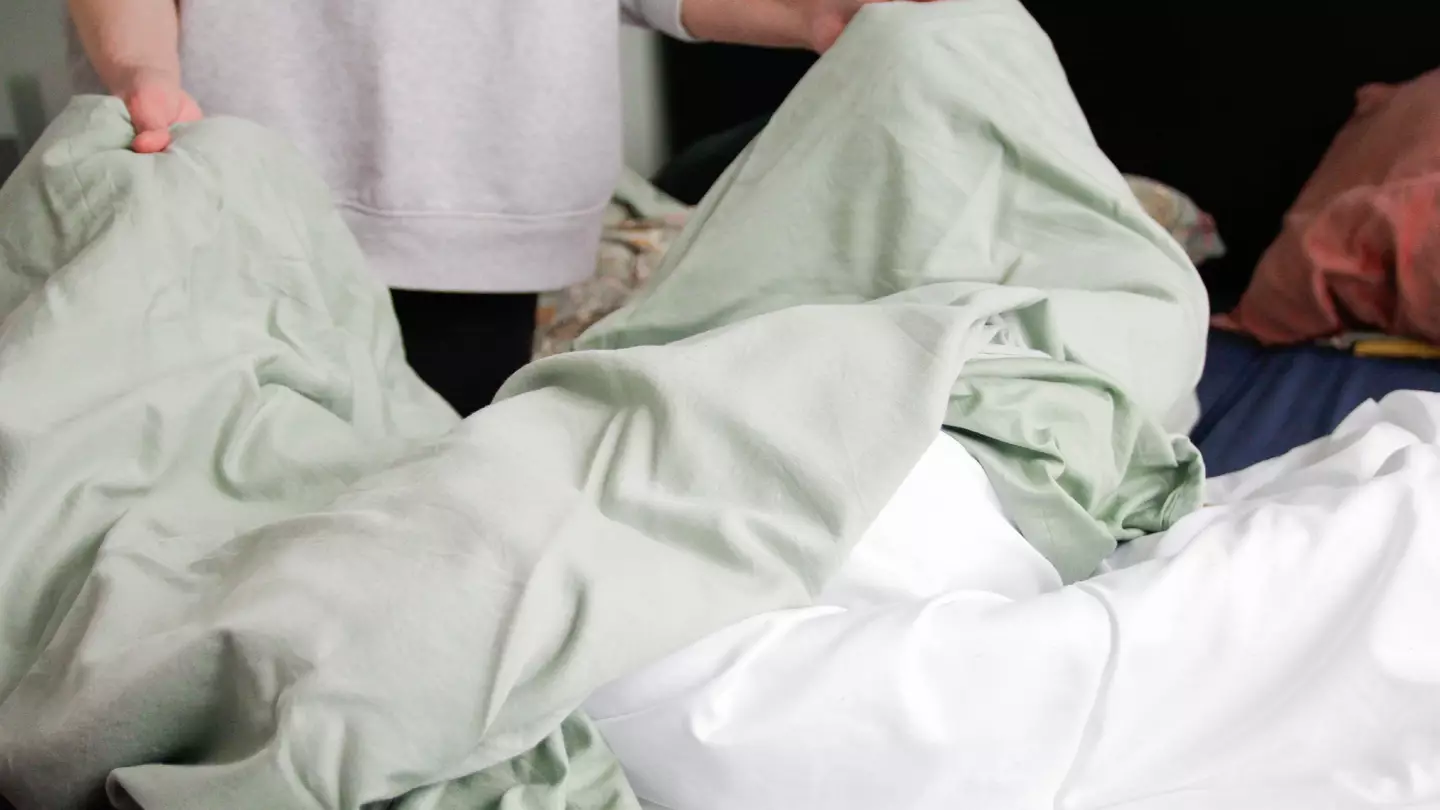

Here’s how often you should wash your bed sheets to avoid health problems further down the line.
It’s never a fun chore is it? While it may be quicker than running the vacuum around the house or doing the gardening, many would argue changing your bed sheets is a bit of a faff.
Nonetheless, we still have to do considering the hygiene disadvantages of using the same bed sheets – but how long is too long?
Well, Martin Seeley, CEO and sleep expert at MattressNextDay, revealed what will happen if you don’t wash them often enough.
“Further studies show that the average bedding harbours around 20,000 dust mites which can be triggering for those that suffer from allergies,” he said.
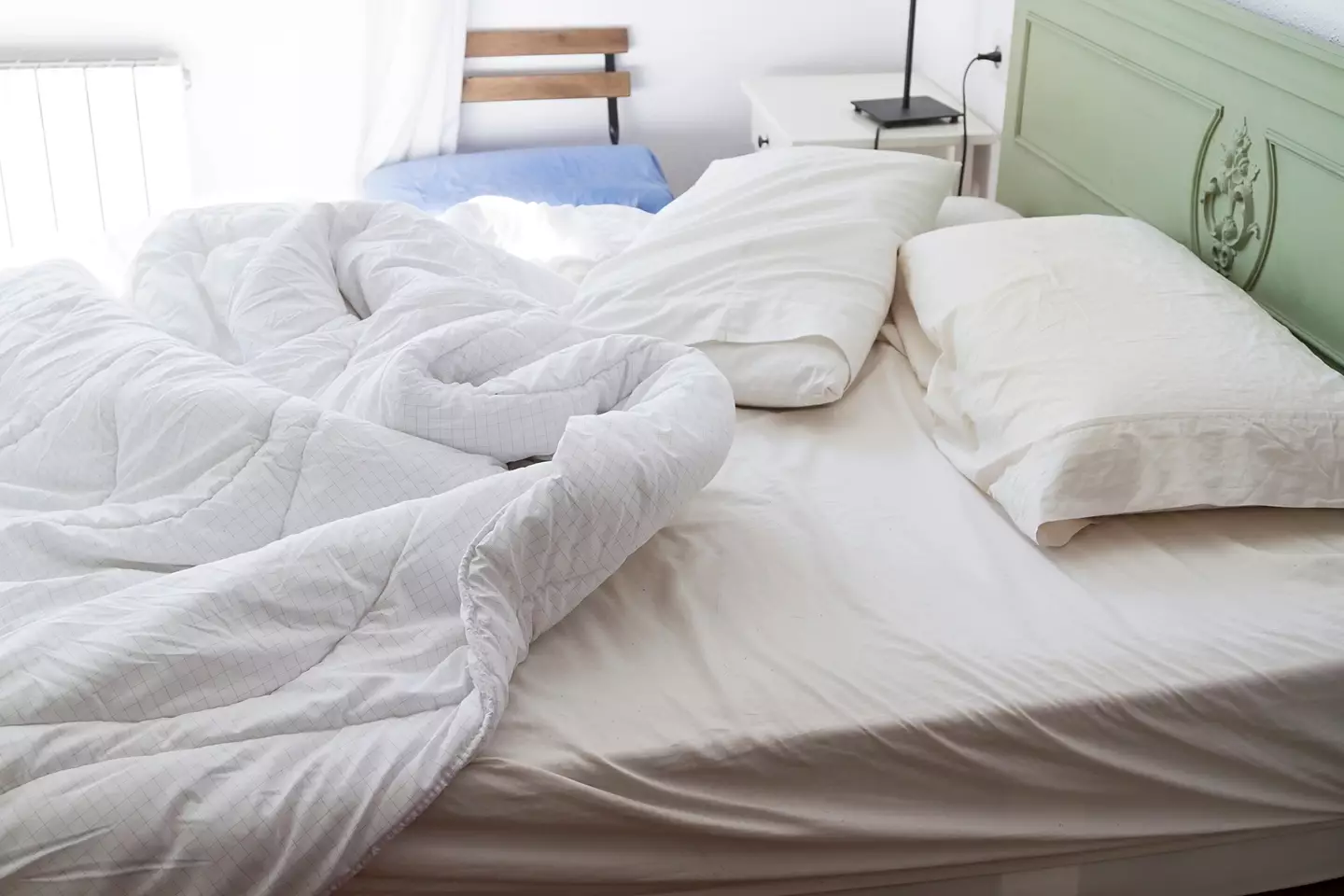

Dirty sheets can cause health implications (Getty Stock Photo)
How often should I wash me sheets?
Martin advises you wash your bedding at ‘least once a week’.
“Given that 80 percent of dust mites are made up of your dead skin, which you naturally produce more of overnight, you should be washing your bedding at least once a week,” Martin added.
What happens if you don’t wash your bed sheets regularly?
To begin with, dust mites can cause stuffy noses and congestion, though not washing can produce more serious health implications.
A study of hospital bed linen in 2013 from the Institut Pasteur de Lille in France found Staphylococcus bacteria on the dirty sheets.
While usually harmless, it can cause acne, skin infections and even pneumonia. The latter can leave you with a ton of nasty symptoms that include struggling to breathe, coughing, a fever, chills, fatigue, and chest pain.
Another study in 2018 in Nigeria found E. coli on unwashed hospital linen, along with bacteria that could cause urinary tract infections, pneumonia, diarrhoea, meningitis and sepsis.
Dr Manal Mohammed told the BBC: “People carry bacteria as part of their skin microbiome and can shed them in large numbers.
“Although these bacteria are typically harmless, they can cause serious illness if they enter the body through open wounds.”
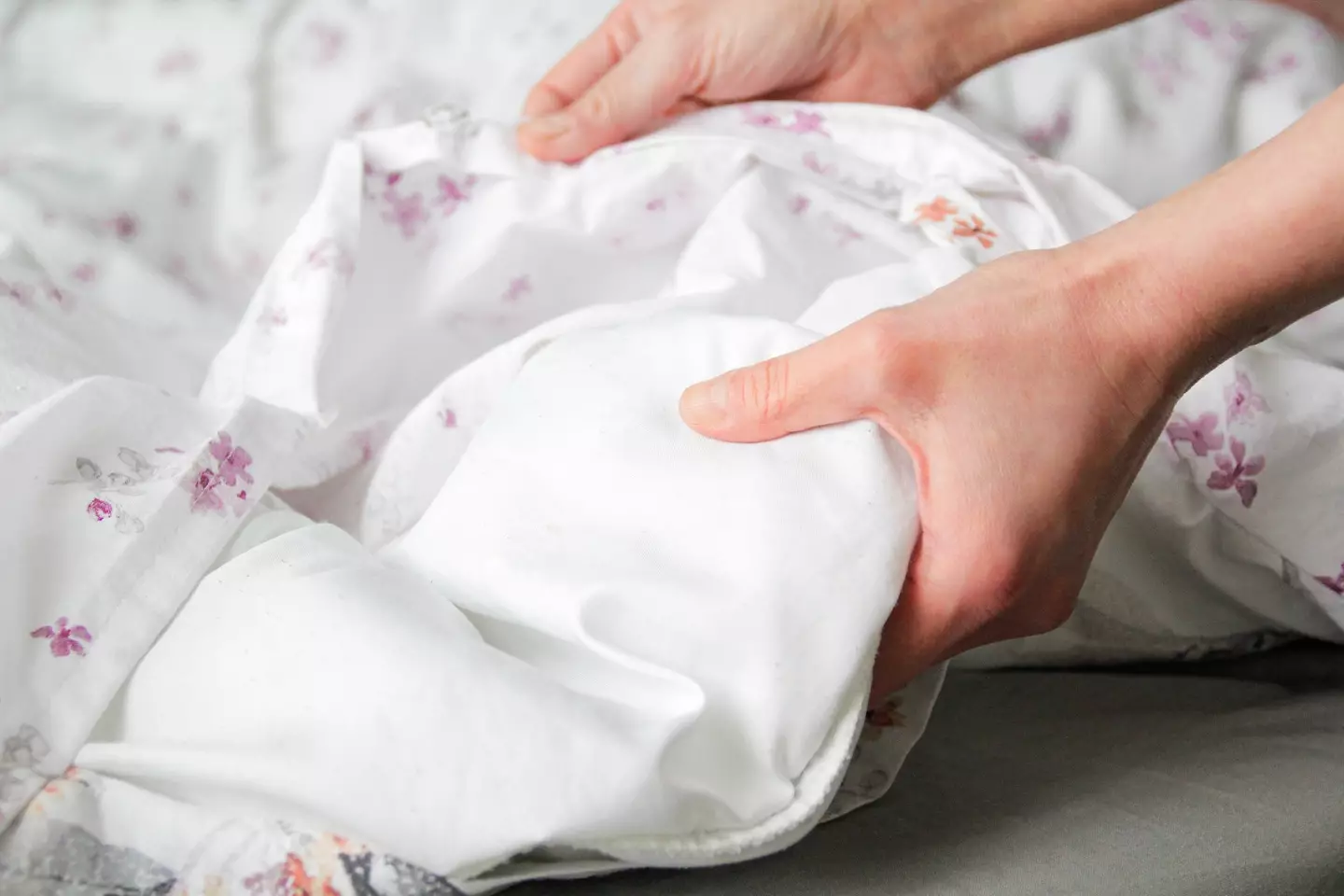

You’re going to want to wash your bed sheets weekly (Getty Stock Photo)
How often should you wash pillows and duvets?
According to WebMD, pillows should be washed at least twice a year, or four times a year if you have pets or eat in bed. They should also be replaced every one to two years.
Dr Almudena Nuño warned what happens if you don’t wash your pillow, telling El Pais: “Over time, they accumulate traces of sweat, sebum and dead skin cells, as well as microorganisms like bacteria and dust mites, which is why they should be washed, not just the pillowcases. Proper hygiene helps prevent skin problems and allergic reactions.”
Which? also advises you wash your duvet one or twice a year, and you can often do this in the washing machine.
Featured Image Credit: Getty Images/Kinga Krzeminska
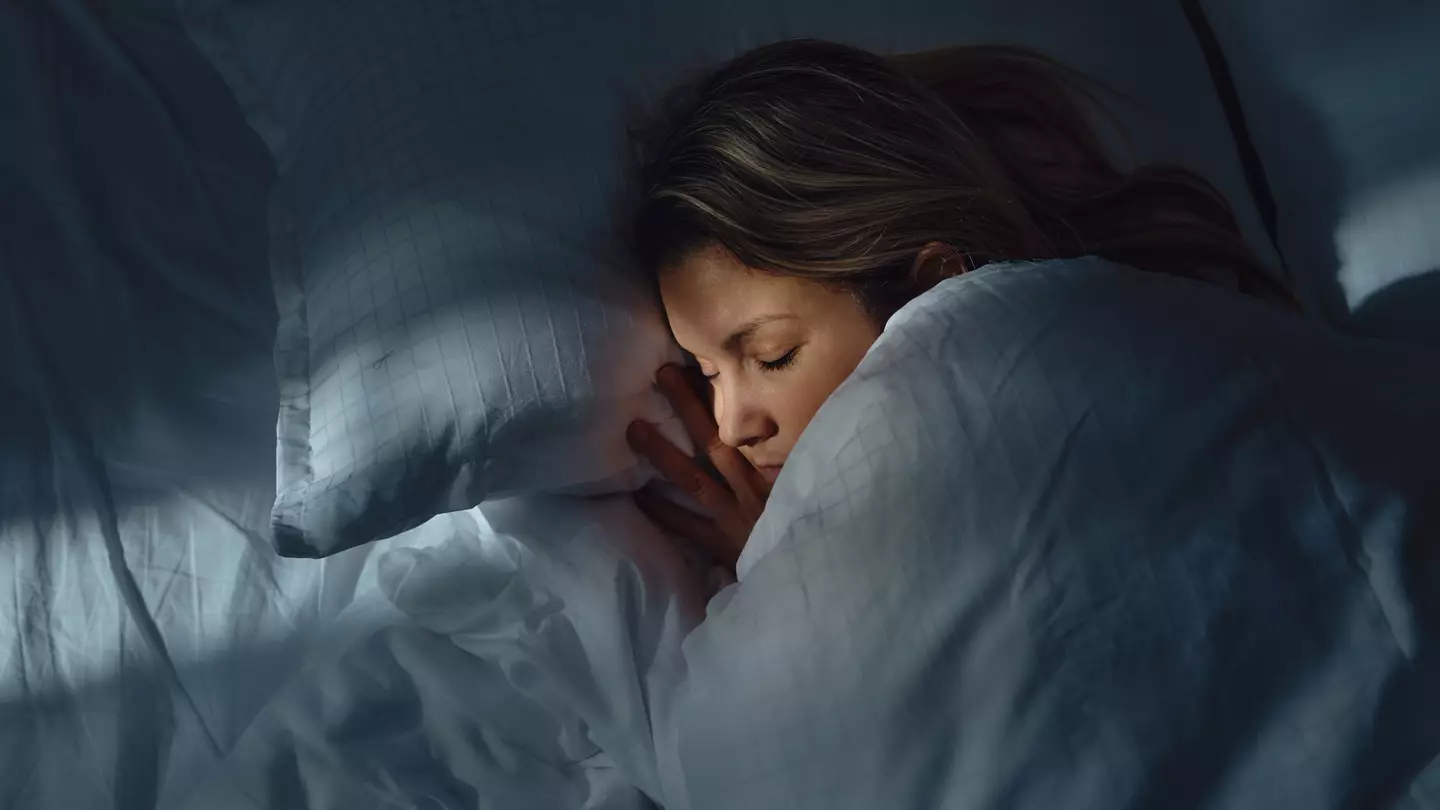

A team of medical researchers from Stanford University have revealed the recommended time to switch your lights out to sleep by before your mental health could end up being negatively impacted.
Nearly 75,000 adults in the UK of middle and older age were included in a survey looking into how going to bed earlier and rising earlier versus staying up late and rising later can impact mental wellbeing.
The study
The survey – published in Psychiatry Research last year – saw the participants get asked about their morning or evening preference – i.e. whether they prefer to go to bed late and wake up later or go to bed early and get up early.
“Among the 73,880 participants, 19,065 self-identified as morning types, 6,844 as evening types and 47,979 as somewhere in the middle,” Stanford Medicine reports.
This was considered alongside participants’ chronotypes too – ‘chronotypes [the] natural preferences of the body for wakefulness and sleep,’ Sleep Foundation explains.
The adults were sent wearable monitors to track their sleep and activities over a seven day period and their ‘sleep behavior’ was divided into three categories – the earliest 25 percent considered ‘early sleepers,’ the middle 50 percent intermediate and the latest 25 percent late sleepers.
This was done rather than using specific times given early or late can mean different things for different groups – for example, college students not seeing a 1am bedtime as late.
The sleep patterns were then looked at alongside the participants’ mental health records.


You may think you work better late at night, but is it worth the risk to your mental health? (Getty Stock Images)
The results
Despite some arguing they’re simply a ‘night owl’ and work better into the night, going to bed later and waking later and their body seemingly preferring this too, the study found no matter what people believed their ‘best’ routine to be for them and their body, it didn’t quite work like that.
Stanford Medicine notes: “When the researchers analyzed the data, they were surprised to find that aligning with one’s chronotype was not the best choice for everyone’s mental health. It was better, in fact, for night owls to lead a misaligned life.
“[…] The results were clear – both morning types and evening types who went to sleep late had higher rates of mental health disorders, including depression and anxiety.”
The recommendation of when to go by then, whether an early or late person? Lights out by 1am latest.
But what happens if you don’t?
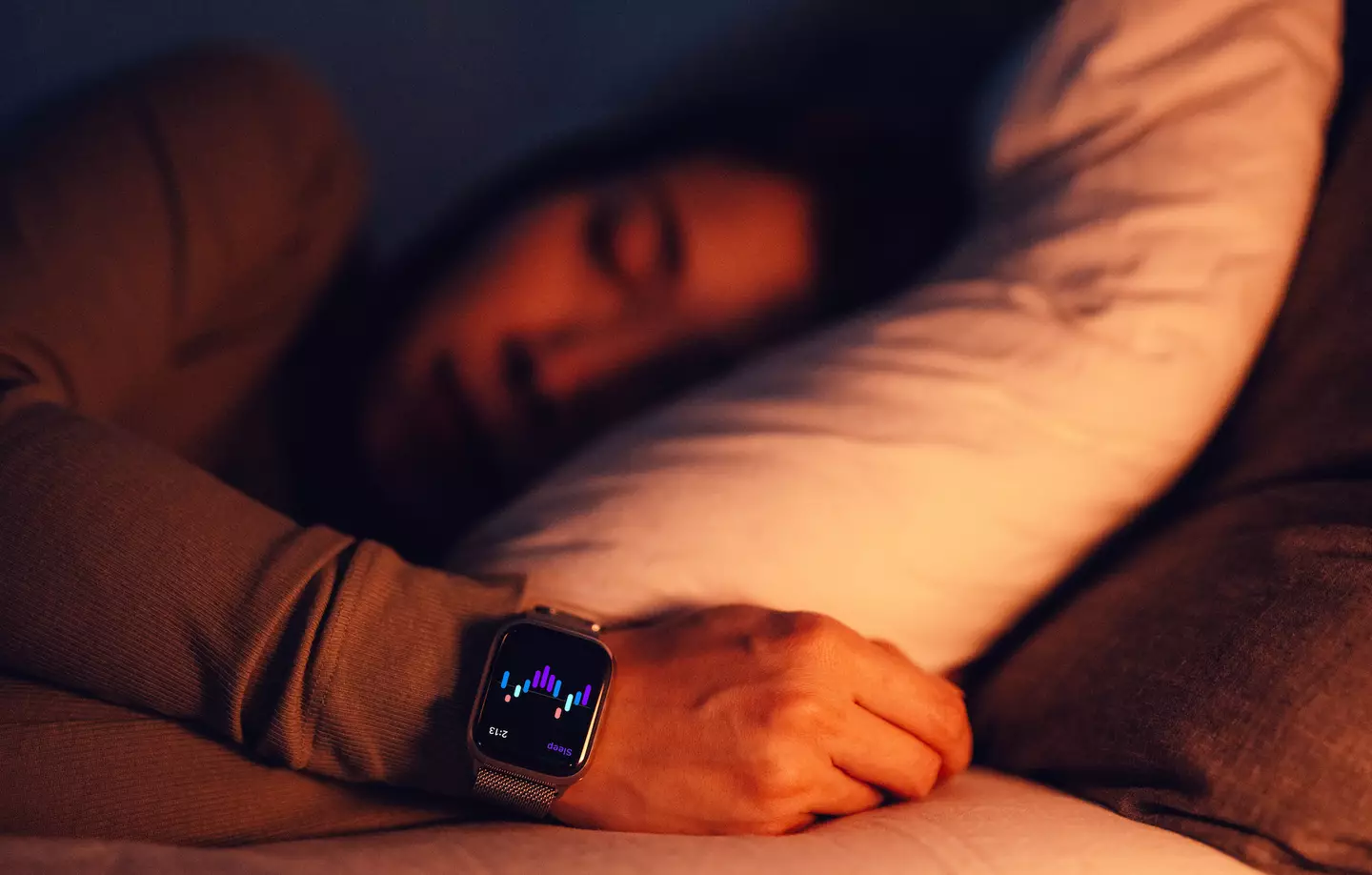

Lights out by 1am, okay guys? (Getty Stock Images)
Well, the ‘worst-case scenario’ was ‘definitely the late-night people staying up late,’ professor (Research) of Psychiatry and Behavioral Sciences and senior author of the study, Jamie Zeitzer, said.
And compared to those following an intermediate or early sleep schedule, those who stay up late were found to be 20 to 40 percent more likely to have been diagnosed with a mental health condition.
“Evening types who followed an earlier schedule fared better,” the study added. “Morning types who followed a later schedule suffered, but not too much.”
Zeitzer resolved: “We found that alignment with your chronotype is not crucial here, and that really it’s being up late that is not good for your mental health.”
It’s no surprise those who got up earlier in the morning tended to have the best mental health either.
However, Zeitzer notes it’s still not clear ‘why’ being up late is ‘not good for your mental health’.


Spring is coming, which means longer days (Getty Stock Images)
He theorizes ‘a guess’ is that ‘morning people who are up late are quite cognizant of the fact that their brain isn’t working quite right, so they may put off making bad decisions’ whereas evening people who are up late may think they’re making a ‘great decision at three o’clock in the morning’ – with alcohol and drugs more likely to then have contributing factors at that time too.
But what happens if your chronotype is going to bed late?
Well, you have to work at it. Try getting into a routine getting into bed a bit earlier and earlier each night and waking up in time to catch some sunlight.
